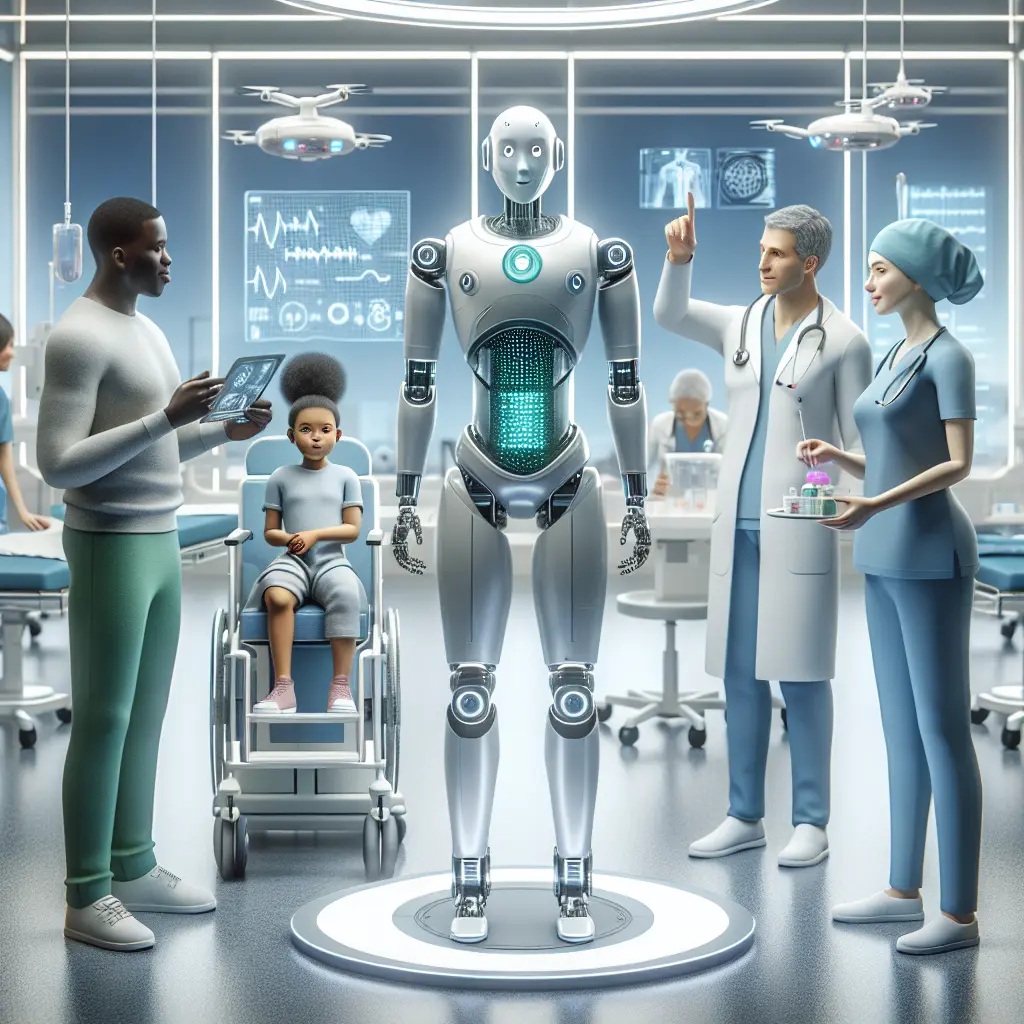
The convergence of robotics and healthcare is not just a fleeting trend; it’s a revolution reshaping the very foundations of patient care, surgical procedures, and healthcare facility operations. In this blog post, we will explore the multifaceted impacts of robotics in healthcare and examine how these technological advancements are heralding a new era of medical treatment and healthcare delivery.
Robotics in Healthcare: A Paradigm Shift
The use of robotics in healthcare has grown exponentially, driven by significant advances in AI and machine learning. Medical robots, including robotic surgery systems and AI surgical robots, are now commonplace in operating rooms around the world. These robotic systems enhance the precision of surgical procedures, reducing recovery times and minimizing the risks associated with human error.
For instance, robotic surgery has been notably advanced by technologies that allow for minimally invasive procedures, which means less pain and quicker recovery for patients. The Da Vinci Surgical System, a pioneer in this field, enables surgeons to perform complex surgeries with enhanced vision, precision, and control.
The Rise of Robotic Nursing Assistants and Telemedicine Robots
Beyond surgical applications, robotics is also transforming patient care through robotic nursing assistants and telemedicine robots. These robots assist with routine patient care tasks, reducing the workload on human nurses and enabling them to focus on more critical aspects of care. For example, Moxi, a hospital robot assistant developed by Diligent Robotics, is designed to autonomously perform tasks like setting up patient rooms or delivering supplies.
Telemedicine robots, on the other hand, facilitate remote consultations, allowing doctors to interact with patients from afar. In rural or underserved areas where medical professionals are scarce, these robots can be life-saving, ensuring that distance is no longer a barrier to quality healthcare.
Automation Beyond Patient Interaction
Hospital automation extends into several backend processes including logistics and inventory management. With the integration of warehouse automation solutions, hospitals can streamline their operations, reduce costs, and improve service delivery. Companies like Swisslog and Omnicell provide automated systems that manage medication dispensing and supply storage, enhancing efficiency while minimizing errors.
Robotic Rehabilitation: Transforming Physical Therapy
Robotic rehabilitation technologies have shown significant promise in improving recovery outcomes for patients undergoing physical therapy. Devices like the LokomatPro provide automated gait training which helps patients relearn walking after neurological injuries. These technologies not only accelerate recovery but also collect data that therapists can use to optimize treatment plans.
The Impact of AI and Robotics on Healthcare Innovation
AI in healthcare is not just about automation; it’s also about insights. AI algorithms are used to analyze vast amounts of medical data to identify patterns that may not be apparent to human analysts. This capability can lead to earlier diagnoses of conditions such as cancer or cardiovascular diseases, significantly improving patient outcomes.
Linking Robotics to Broader Technological Trends
The integration of robotics in healthcare is part of broader healthcare technology trends that include digital health records, personalized medicine, and the Internet of Medical Things (IoMT). Each of these technologies contributes to a more connected, efficient, and personalized healthcare system.
Future Outlook: What’s Next for Robotics in Healthcare?
As we look towards the future, the potential for further integration of robotics in healthcare seems boundless. With ongoing research and development fueled by increased investment in healthcare innovation, we can expect to see even more sophisticated robotic healthcare solutions. According to recent market analysis reports such as those covering the DNA vaccination market and free space optics communication technology, the continued growth and segmentation in these areas suggest a robust integration with robotic technologies providing enhanced connectivity and delivery systems for healthcare applications.
Challenges and Ethical Considerations
Despite the benefits, the rise of robotics in healthcare does bring challenges. Issues such as data privacy, cybersecurity, and the potential for job displacement in the healthcare sector need careful management. Moreover, there are ethical considerations around patient autonomy and the role of AI in making clinical decisions.
Conclusion
In conclusion, the impact of robotics on healthcare is profound and far-reaching. From robotic surgery to nursing assistants, telemedicine, and rehabilitation technologies, these advancements are setting new standards for efficiency, safety, and patient care quality. As we continue to navigate these innovations, it remains crucial to balance technological integration with ethical considerations to fully realize the benefits while managing potential risks.
Thank you for joining me on this exploration of how robotics is transforming the healthcare industry. As we move forward, let's remain vigilant and informed about these technologies, ensuring they lead not only to better health outcomes but also to a greater understanding of what it means to provide care in the 21st century.
Signed, Nora Pennington